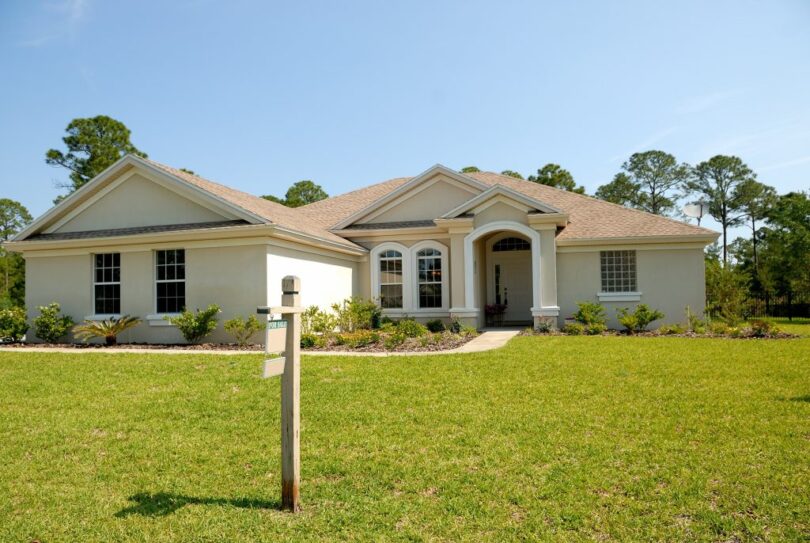Real estate market, making sound investment choices is crucial to growing your wealth and securing financial stability. But how do you spot a good real estate investment? This guide provides insightful tips for recognizing a good real estate deal and maximizing returns on your investment.
Whether you’re an experienced investor or a beginner looking to start investing money in property, understanding the key aspects of real estate investment can make a world of difference. Let’s dive into practical strategies and signs to look for when making these critical financial decisions.
Understanding Real Estate Investment
Real estate investment refers to purchasing property—whether residential, commercial, or land—with the intention of earning a return on the investment. This return could come through rental income, appreciation of property value over time, or even flipping properties for a profit. Understanding these basic elements is the foundation of recognizing a good deal.
By identifying potential risks and opportunities, you can enhance your ability to secure a profitable investment while avoiding pitfalls that may drain your resources. Whether it’s investing money in a single-family home or a commercial building, you must be strategic in your approach.
Tips for Recognizing a Good Real Estate Investment
1. Location, Location, Location
One of the oldest and most critical rules in real estate investment is location. The property’s location is a determining factor in both its immediate and long-term value. A great property in a poor location will yield minimal returns, whereas a decent property in a booming area could provide significant gains.
Look for:
- Proximity to schools, hospitals, and essential services.
- Future urban development projects.
- Low crime rates.
- Public transportation accessibility.
Researching the area’s growth trends is key to making a smart investment decision.
2. Property Condition and Maintenance Costs
Another essential tip for recognizing a good real estate investment is to carefully evaluate the property’s current condition. Buying a property with significant structural damage or outdated features can be a money pit. Make sure to:
- Conduct thorough inspections.
- Consider renovation and repair costs.
- Weigh the cost of upkeep against the property’s potential rental income or resale value.
A well-maintained property with minimal repairs will save you significant amounts of money and frustration in the long run.
3. Cash Flow Potential
A successful real estate investment should generate positive cash flow. This means the income you receive from the property—whether through rent or selling—should exceed your expenses. Before buying, calculate:
- Estimated monthly rental income.
- Monthly mortgage payments.
- Insurance, taxes, and other recurring costs.
Properties in high-demand rental markets can ensure consistent cash flow, making them an excellent choice for investors.
4. Market Trends and Timing
Timing is essential when investing money in real estate. Monitoring market trends and understanding economic cycles can help you avoid buying during a housing bubble. Real estate markets can be highly unpredictable, but doing your homework can save you from making costly mistakes. Pay attention to:
- Rising or falling property values in the area.
- Interest rates and mortgage rates.
- Local employment trends and economic health.
By investing in a down market or recognizing when prices are about to rise, you can increase your chances of long-term profitability.
5. Leverage and Financing Options
Smart investors know how to use leverage to their advantage. Leverage allows you to purchase property using borrowed money, maximizing the return on your initial investment. However, it’s essential to find the right financing options to avoid over-leveraging, which can lead to financial ruin. When seeking loans, compare:
- Interest rates.
- Loan terms.
- Down payment requirements.
Consider working with a financial advisor or mortgage broker to find the best financing options for your investment goals.
6. Economic Development and Future Growth Potential
Is the area where you’re considering investing undergoing economic development? Real estate markets in regions with increasing job opportunities, growing populations, and new infrastructure projects are often ripe for investment. These areas often see higher demand for both rental and owned properties, leading to value appreciation over time.
Look for cities or neighborhoods that are undergoing revitalization or are targeted for major infrastructure improvements.
Benefits of Investing Money in Real Estate
Tangible Asset Growth
Real estate is one of the few investment options that provide tangible assets. Unlike stocks or bonds, which exist primarily on paper, real estate offers physical property you can touch, use, or rent out.
Long-Term Financial Stability
Investing in real estate offers long-term financial security, especially in markets where property values tend to appreciate over time. While there are risks, well-researched properties in stable areas can grow steadily, providing a reliable income stream for decades.
Tax Benefits
Owning real estate also comes with several tax advantages, including deductions for mortgage interest, property taxes, and depreciation. These benefits can significantly reduce your tax liability, increasing the net return on your investment.
Mistakes to Avoid When Investing in Real Estate
1. Overestimating Your Budget
One common mistake among new investors is overestimating how much they can afford to spend. Just because you’re approved for a loan doesn’t mean you should max out your budget. Always factor in:
- Hidden costs (inspection fees, closing costs, repairs).
- Ongoing maintenance expenses.
- Market volatility.
2. Ignoring Due Diligence
Failing to perform due diligence can result in financial losses. Always research the neighborhood, inspect the property, and review local zoning laws before making a purchase. Ensure that all the paperwork, permits, and contracts are in order before closing the deal.
3. Being Impatient for Returns
Real estate is typically a long-term investment, so patience is key. Expecting quick profits, especially in a fluctuating market, can lead to rushed decisions that backfire.
Evaluating Return on Investment (ROI) in Real Estate
The potential return on investment (ROI) is a critical factor when assessing whether a property is worth buying. ROI measures the profitability of your real estate investment and can be calculated by:
- Subtracting the total costs (purchase price, renovations, taxes, and insurance) from the total income generated.
- Dividing that result by the total investment cost.
A property with a high ROI is a sign of a good real estate investment. Consider using ROI calculators or working with financial experts to make accurate evaluations.
Conclusion
Making a sound real estate investment requires knowledge, patience, and strategic planning. By following these tips for recognizing a good real estate investment, you can increase your chances of success and avoid costly mistakes. Whether you’re investing money in your first property or expanding a portfolio, understanding market trends, evaluating cash flow, and choosing the right location are key to making profitable decisions.
Frequently Asked Questions
What is the best way to start investing money in real estate? The best way to start investing money in real estate is by educating yourself on the market and starting small. Many new investors begin with rental properties, which can generate steady income. Working with a local real estate agent or financial advisor can also help you make informed decisions.
How do I know if a real estate investment is good? A good real estate investment usually has a favorable location, positive cash flow, and potential for appreciation. Thorough research on the property’s market, condition, and financing options is essential to determine its profitability.
Is it better to invest in residential or commercial real estate? It depends on your investment goals. Residential real estate is often less risky and easier to manage, while commercial real estate offers higher returns but comes with more significant challenges and higher upfront costs.
How much money do I need to start investing in real estate? The amount varies depending on the type of property and location. Generally, you’ll need a down payment (usually 20% of the property’s value), plus extra funds for closing costs, repairs, and ongoing maintenance.
What is the importance of market trends in real estate investment? Understanding market trends helps you predict property value movements, allowing you to buy low and sell high. Market trends also reveal rental demand and the best locations for investment.
How do I assess property cash flow? You can assess property cash flow by subtracting all operating expenses (including mortgage payments, property taxes, and maintenance) from the monthly income generated by rent. Positive cash flow means the property earns more than it costs.








Leave a Comment